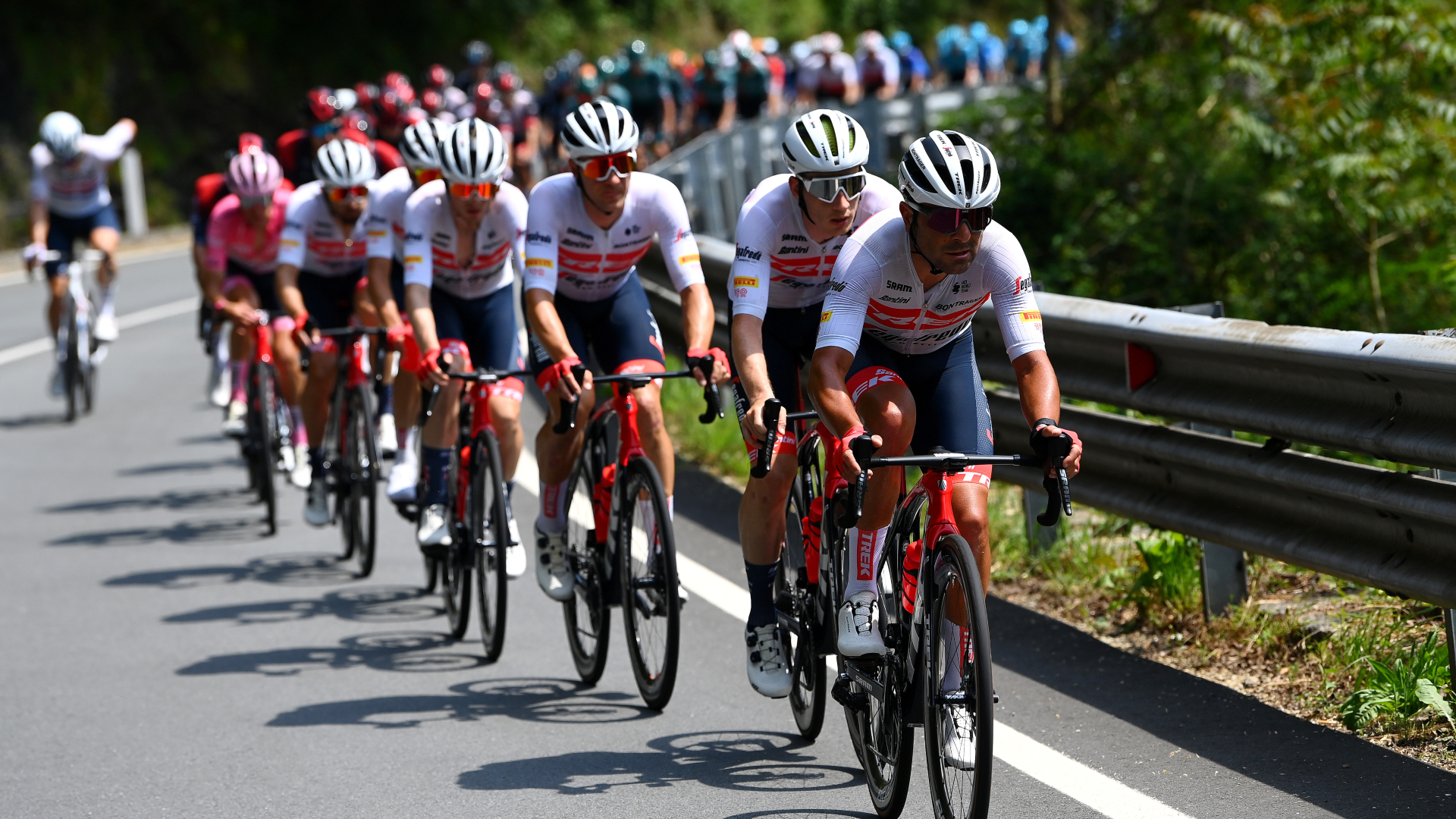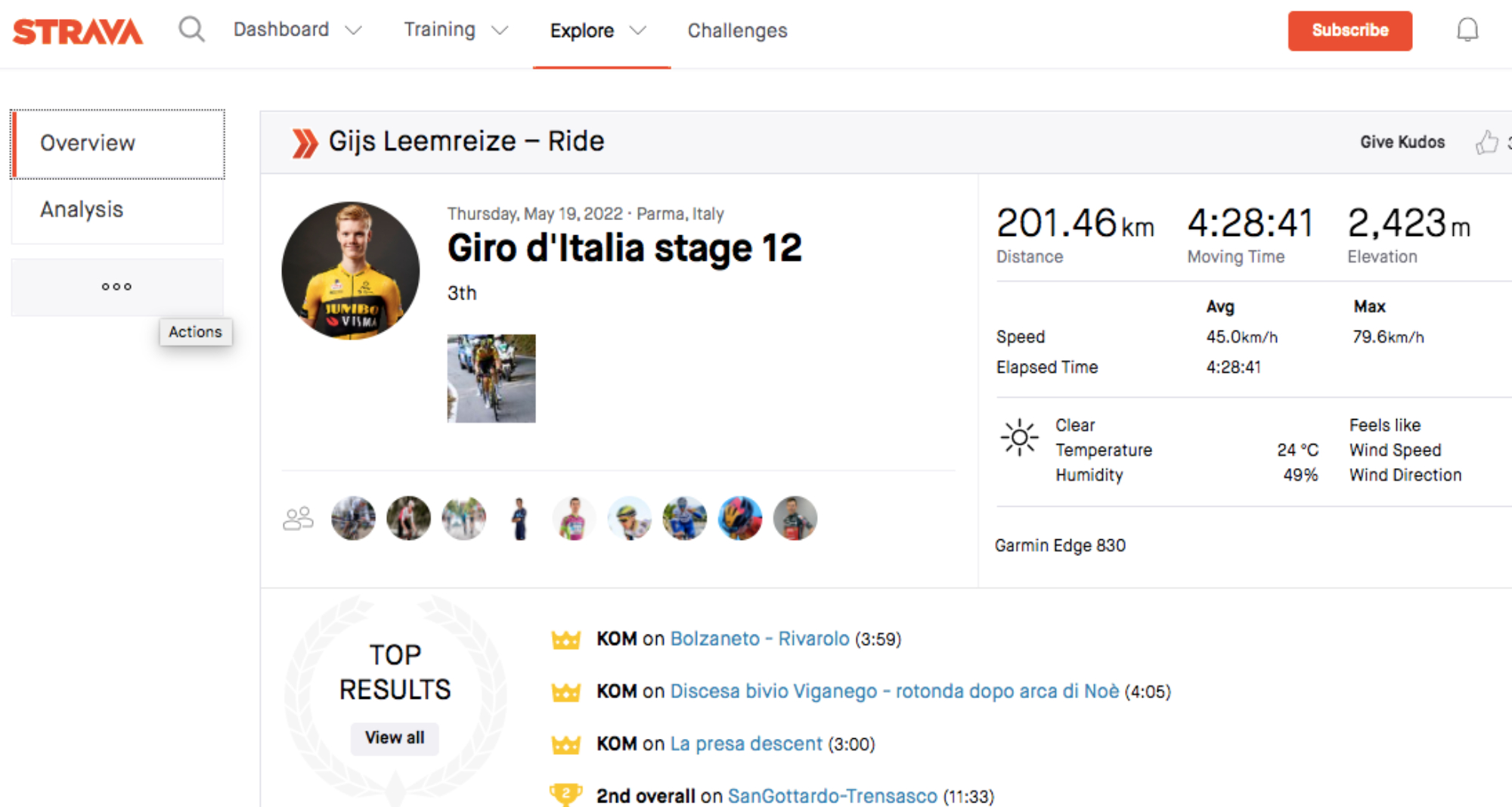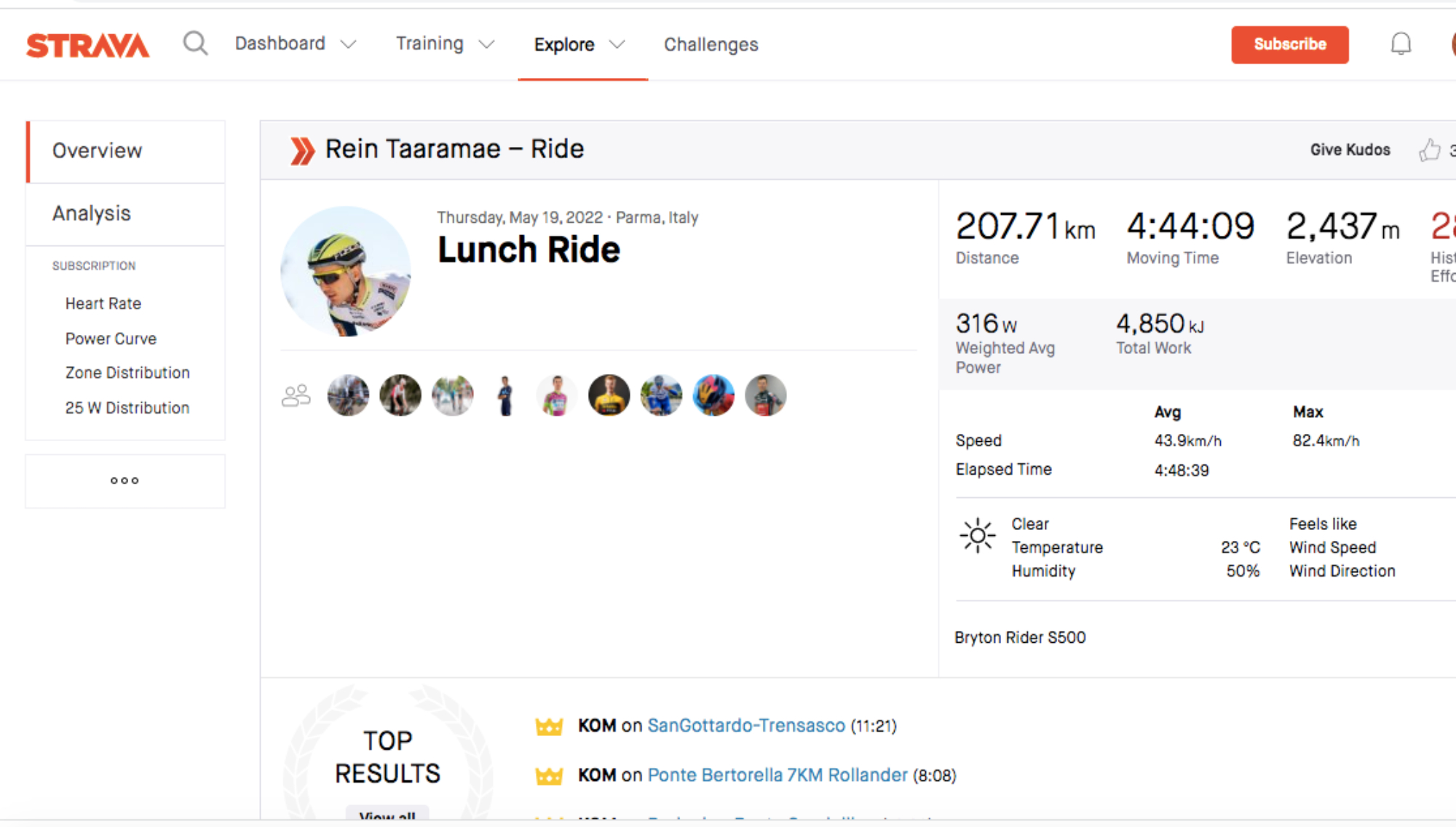Blistering pace on stage 12 of the Giro d'Italia makes it one of the fastest ever 'lunch rides'
Won by Stefan Oldani, the riders averaged 45.88km/h over 203 challenging kilometres

Stage 12 of this year's Giro will largely be remembered for Stefano Oldani (Alpecin-Fenix) breaking his duck, winning for the first time as a professional and at his home grand tour no less. But it will also go down as a day the riders went fast. Really fast.
Before the flag was dropped you wouldn’t have imagined that the average speed at the conclusion of the stage would be 45.88km/h. After all, this was the longest tappa in this year’s corsa rosa, and a lumpy one at that, with 2,600 metres of elevation gain.
Oldani’s winning time was 4-26-48. So not only were the riders’ average speeds mind boggling, they were the product of a pretty long day in the saddle. Speed is one thing. Sustaining it for the time it takes to play three football matches is another altogether.
Strava data for the stage that took the riders from Parma to Genoa makes for interesting reading, though some riders opted to stick with the generic title 'lunch ride'.
Gijs Leemreize (Jumbo-Visma), who formed part of the three-man breakaway that eventually contested the sprint finish, averaged 45 km/h for the day. Given that they had to work hard to distance themselves from the original breakaway group, it’s perhaps unsurprising that his average speed was high.

However, the peloton didn’t take its foot off the gas either once the break had been established. One of the favorites to wear the maglia rosa in Verona Richard Carapaz (Ineos Grenadiers) averaged 43.5km/h for the stage while the man currently wearing it, Juan Pedro Lopez (Trek-Segafredo), also averaged just shy of 44 km/h.
Riders' power numbers reflected the efforts and speeds required to keep pace. Rein Taaramäe (Intermarché-Wanty-Gobert Matériaux), who was part of the 22-man breakaway and eventually finish the stage in ninth, averaged 316w weighted. Attlia Valter (Groupama_FDJ) finished in the maglia rosa group, some 9-08 behind. According to his Strava account he averaged 274w weighted, some 50w more than the previous day and 130 greater than his output for during stage six, which was raced at a snail's pace in comparison. Britian's Alex Dowsett (Israel - Premier Tech), who rolled in with the grupetto, averaged 292w weighted.
Get The Leadout Newsletter
The latest race content, interviews, features, reviews and expert buying guides, direct to your inbox!

These impressive average speeds were in part due to a frantic beginning to the stage. The breakaway took a considerable time to form, with attempt after attempt thwarted by those who’d missed out. With race directors no doubt barking in their ear pieces, riders kept up the intensity. After an hour’s racing the peloton had covered 53 km.
Modern racing is less formulaic than in years past and stage 12 typified the frenetic pace that is one of its hallmarks. It made for exhilarating viewing from the sofa but for the riders it appears to have been nothing short of exhausting. Take Tobias Bayer (Alpecin-Fenix). The Austrian rider rolled across the line in 156th place, some 19-40 down on Oldani’s winning time. That said, he still had an average heart rate for the day of 129 bpm and at times reached 182 bpm. Contrast this with sleepy stage six where Bayer’s heart rate dropped as low as 39 bpm. If this suggests he was taking a nap it’s not far off. The average speed that day was 38.076km/h on a far less taxing parcours.
Yesterday’s stage wasn’t the fastest of this year’s Giro however. That award goes to the previous day into Reggio Emilia where the winner, Alberto Dainese (Team DSM), averaged just over 47 km/h . However the parcours featured barely a bump in the road, with less than 500 metres of climbing over the 201km.
As for the fastest ever stage in Giro history, that goes to stage seven of the 2020 edition, won by the current wearer of the ciclamino jersey Arnaud Démare (Groupama-FDJ). Finishing in Brindisi, the French sprinter averaged 51.23km/h for the 143 km stage that featured very little elevation gain. It was also notable for being the first time in Giro history that the winning speed had surpassed 50 km/h, with the previous record standing at 49.43km/h, achieved on stage 18 in the 2012 race.

Thank you for reading 20 articles this month* Join now for unlimited access
Enjoy your first month for just £1 / $1 / €1
*Read 5 free articles per month without a subscription

Join now for unlimited access
Try first month for just £1 / $1 / €1
Luke Friend has worked as a writer, editor and copywriter for twenty five years. Across books, magazines and websites, he's covered a broad range of topics for a range of clients including Major League Baseball, the National Trust and the NHS. He has an MA in Professional Writing from Falmouth University and is a qualified bicycle mechanic. He has been a cycling enthusiast from an early age, partly due to watching the Tour de France on TV. He's a keen follower of bike racing to this day as well as a regular road and gravel rider.
-
 FDJ-Suez, SD Worx-Protime, Lidl-Trek confirmed for Tour of Britain Women as strong list of teams announced
FDJ-Suez, SD Worx-Protime, Lidl-Trek confirmed for Tour of Britain Women as strong list of teams announced18 teams set to take part in four-day WorldTour stage race
By Tom Thewlis
-
 Cyclists could face life sentences for killing pedestrians if new law passed in England and Wales
Cyclists could face life sentences for killing pedestrians if new law passed in England and WalesReckless cycling currently carries a maximum two-year jail term
By Tom Thewlis